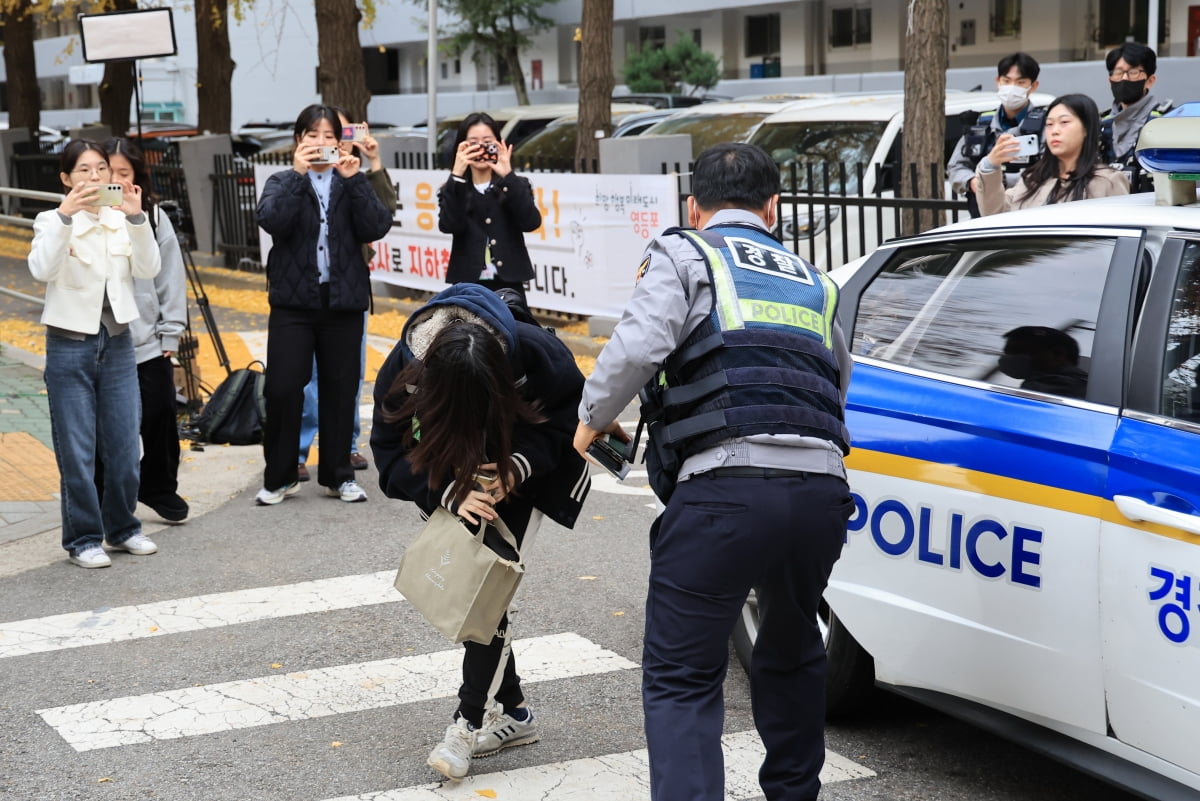If you're familiar with South Korea's intense focus on education, you've probably heard of the College Scholastic Ability Test (CSAT), locally known as 수능 (Suneung). It's not just any exam; it’s the exam. Held once a year, 수능 is a life-changing event for millions of students—and their families. It determines which universities students can attend, and by extension, significantly influences their future career and social standing. But beyond its significance, the culture and unique rituals surrounding 수능 make it one of the most fascinating and pressure-filled events in Korean society.
And yes, there are plenty of funny and interesting stories to go along with it!
What Is the CSAT (수능)?

The 수능 is an all-day standardized test covering subjects like Korean, Math, English, Science, Social Studies, and even a second foreign language. It's designed to rank students for university admissions. Unlike exams in some countries, you can't retake it multiple times a year—this is your one shot (at least for the academic year). The pressure to perform well is immense, as South Korea’s top universities—often referred to as “SKY” (Seoul National, Korea, Yonsei)—are seen as gateways to success.
Pre-Exam Rituals: Superstitions and Support
![%uC11C%uC6B8%uD3EC%uD1A0] '%uC218%uB2A5 %uC751%uC6D0%uD558%uB294 %uD6C4%uBC30%uB4E4' | %uC11C%uC6B8%uC2E0%uBB38](https://img.seoul.co.kr//img/upload/2019/11/14/SSI_20191114101204.jpg)
The period leading up to 수능 is filled with unique traditions, as students prepare for the most important test of their lives:
-
Good Luck Charms
Parents buy their children good-luck items like sticky rice cakes (symbolizing that answers will "stick" to their brains) or 엿 (yeot), a traditional sticky Korean candy. Sticky foods are believed to bring good fortune. -
Temples and Prayers
Many parents, especially mothers, visit temples or churches to pray for their children’s success. It’s not uncommon to see huge crowds of moms holding candles and chanting prayers late into the night. -
Support from Younger Students
On the morning of the exam, it's a common sight to see juniors from the same high school gathering outside the test center to cheer on their seniors. Armed with banners, hot packs, and sometimes even musical instruments, they shout encouraging phrases like “Fighting!” and wish their 선배 (sunbae, or senior) good luck.
The Test Day: A Nation Comes to a Halt

On the actual day of 수능, the entire country literally changes its routine to accommodate the test-takers.
-
Morning Police Escorts
Waking up late on 수능 day is every student's nightmare, but don’t worry—police officers are on standby to help. If a student is running late, they can flag down a patrol car or even a motorcycle, and the officers will speed them to the test center. There are plenty of viral videos showing frantic students hopping into police vehicles, making for some pretty entertaining TV news coverage. -
Noise-Free Zones
During the English listening comprehension test, all flights in and out of South Korea are grounded for about 30 minutes. Even construction sites are required to halt work, and honking your car horn during this time is a big no-no. It's probably the quietest South Korea ever gets! -
Military Precision
The entire process of the test, from distributing papers to the timing of each section, is handled with military-level precision. Invigilators take their roles extremely seriously, ensuring there’s no chance of cheating or error.
Funny and Unique Scenes from CSAT Culture
![수험생 할인] 롯데월드 8일부터 4일간 자유이용권 만원 '수능 스트레스 한 방에'](https://cdn.diodeo.com/cdn/news_photo/2012/11/08/94857-01-20121108182526.jpg)
-
Over-the-Top Parental Support
Some parents take their devotion to the next level. There are stories of mothers renting hotel rooms near the test centers so their kids can avoid traffic and stress. Others even perform rituals like walking barefoot on mountains or fasting for days in hopes of divine intervention. -
Post-Exam "Freedom" Celebrations and Special Discounts
After the test, students let loose in dramatic fashion. Karaoke rooms, arcades, and restaurants are flooded with relieved test-takers celebrating their new-found freedom. It's also common for students to dye their hair or make other changes to their appearance as a symbolic "rebellion" against the strict study-focused lifestyle they've endured. Additionally many businesses like movie theaters, amusement parks, hospitals, etc. have special promotions or discounts that go up to 40% if a student shows the test card. -
Exam Horror Stories
One infamous story involves a student who accidentally tore their answer sheet in frustration. Unfortunately, in such a high-stakes test, even small mistakes can lead to major consequences. Another anecdote involves a parent sending their child to the wrong test center—a situation that’s every family's worst nightmare.
Why Foreigners Find CSAT Culture Fascinating
For many foreigners, the sheer scale of national involvement in 수능 is mind-blowing. The idea that planes stop flying, police become personal chauffeurs, and an entire country adjusts its schedule for one exam feels almost surreal. It’s a reflection of South Korea’s intense academic culture, but also a testament to how much the society values education and its youth.
The 수능 is more than just a test—it’s a cultural phenomenon. It represents the dreams, sacrifices, and hard work of not only the students but also their families. For better or worse, it’s a unique tradition that defines South Korea's pursuit of excellence and the lengths to which a society will go to support its young generation.
So, if you happen to be in Korea in mid-November, you’ll witness this remarkable event. And who knows, you might even get to cheer for a late student speeding by in a police car!
